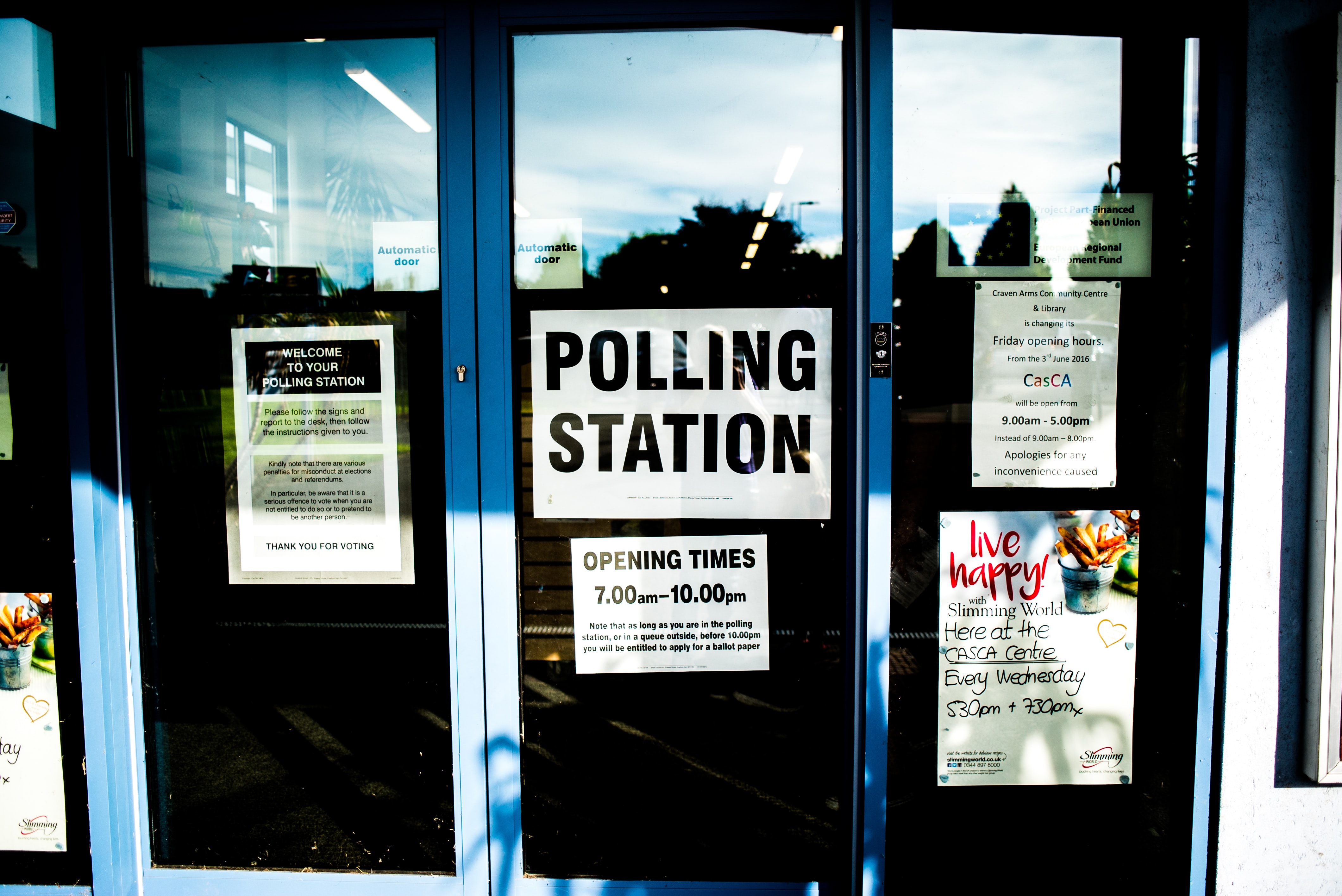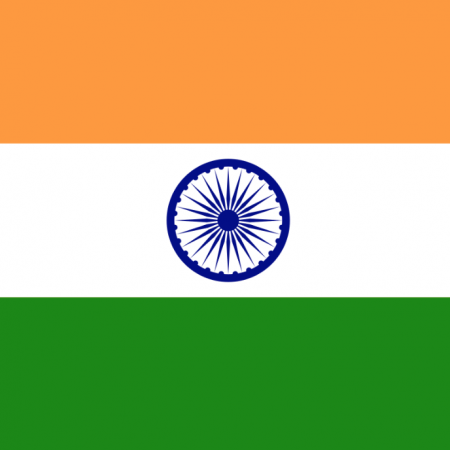The Central African Republic’s Complex War, Explained in Journey of a Muslim Baby Girl
By Sudarsan Raghavan
 |
| Sudarsan Raghavan/TWP – St. Pierre Parish in the town of Bouali, Central African Republic, is shown on Feb. 6. Here, thousands of Muslims sought refuge inside the church. |
BOYALI, Central African Republic — Fatimatu Yamsa will never know her baby’s fate, but in an instant she altered it forever.
They were fleeing violence, traveling in the back of a truck packed with Muslims and Christians. The vehicle pulled into a checkpoint outside a ransacked mosque in this shattered town. Armed Christian vigilantes ordered all the Muslims to get out.
Yamsa stood up and handed her baby to a Christian woman who said she would pretend the girl was hers. She whispered to the woman: Find my brother-in-law in the next town and give the infant to him.
Then she got out with her three young sons and several other Muslims.
The baby’s name was Shamsia, and her ordeal had just begun.
Retracing her journey from that tragic morning helps explain the complexities of the sectarian war engulfing the Central African Republic. It is a conflict so vicious that U.N. Secretary-General Ban Ki-moon has warned it could spiral into genocide and effectively partition the country. This week, he called for a nearly 12,000 strong U.N. peacekeeping force to bolster an existing contingent of French and African Union soldiers that have failed to halt the violence.
Shamsia, now 8 months old, will one day learn how she was saved by a split-second decision by two women who refused to be influenced by the hatreds enveloping their country. She will also one day learn how her mother and her brothers died.
“They were all killed in front of the mosque,†said Serge Gougodou, a farmer who witnessed the massacre. The assailants hacked their prisoners to death with machetes and knives, he and other witnesses said. Then their corpses were dumped in a mass grave.
In recent weeks, the conflict has deepened. While hundreds of thousands of Christians remain displaced, and many continue to die, human rights groups are warning of ethnic cleansing as assaults against Muslims increase. Yet there are also people willing to take great risks to preserve the bonds that once unified their communities for as long as anyone can remember.
This report is based on visits to the places Shamsia passed through and interviews with her relatives and other people who helped her along her journey. Witnesses to the massacre of her family and the Christian vigilantes who now rule the countryside outside Bangui, the capital, were also interviewed.
Shamsia, whose name in Arabic roughly means “shining star,†would flee more violence with her relatives and find refuge in the unlikeliest of places.
“It was a miracle she survived,†said Aalaji Yamsa, her uncle.
Bangui: A crisis worsens
On the morning of Jan. 14, the Yamsa family decided to leave Bangui.
It had been four days since the nation’s first Muslim leader, Michel Djotodia, had resigned under pressure from regional leaders. The Muslim rebels, called Seleka, who had helped install him in a coup last March had committed atrocities against the country’s Christian majority. The violence fueled the rise of Christian militias known as “anti-balaka,†or anti-machete, in the local Sango language.
With Djotodia gone, the Seleka began to withdraw, leaving Muslims unprotected. Then the Christian vigilantes escalated their attacks on Muslims.
The Yamsa family, like most Muslims, had lived peacefully with Christians. Since gaining independence in 1960 from France, their country has had many coups and few periods of stability, but rarely any religious violence. The two communities traded with each other, intermarried, lived in mixed areas.
Now, with tensions rising, the Yamsas packed up their belongings. Shamsia’s father, Bouba, and an older brother stayed behind to watch over their home. The rest of the family piled into the back of a truck headed to neighboring Cameroon.
Boyali: A vow not to let Muslims return
Like many areas in the country, control of the hamlet of Boyali, 80 miles northwest of Bangui, had shifted several times in recent weeks.
A few days before the Jan. 14 massacre, the Seleka forces left town. The Christian militias then killed more than two dozen Muslims, burning houses and destroying the mosque. Most Muslims fled. Then, Seleka fighters returned. They killed many Christians and burned down scores of Christian homes. None of the roughly 6,500 French and African peacekeepers, empowered by the U.N. Security Council to safeguard civilians, were in Boyali during the rampage.
By the time the truck carrying the Yamsa family rolled into town, the Christian fighters were back in control. It was their time to seek revenge.
After the Yamsas and other Muslims got out of the truck, the militias led the prisoners inside the mosque and ordered the truck to leave. Inside the mosque, the fighters took their money and belongings, witnesses said, then chopped them to death outside on the road.
The dead included two of Shamsia’s brothers, ages 5 and 3, and an 18-month-old relative, according to her uncle. But another brother escaped during the confusion and made his way to a nearby town where a relative lived.
After the killings, the anti-balaka fighters hauled the corpses to a nearby mango grove. “They brought the bodies over there, and dug a large hole,†said Sonya Infana, a neighbor, pointing at a mound. “They threw the bodies inside.â€
On a recent visit, clothing still lay scattered on the reddish earth. Children played, and mothers washed clothes, steps from the grave. A group of anti-balaka fighters sat under a tree, near charred houses. There were no more Muslims in the town.
Outside the destroyed mosque, stripped bare by looters, splotches of dried blood still stained the road.
Every witness spoke matter-of-factly about what happened, as if killing had become mundane. No Muslims can live here again, vowed Augustin Bonizo, a Christian resident. “We will kill anyone who returns.â€
Bossembele: ‘We were never friends’
The truck carrying Shamsia then arrived in Bossembele, 20 miles north of Boyali. At a truck stop in the town center, the Christian woman asked for the baby’s uncle. Some people went to find him. When Aalaji Yamsa arrived and identified himself, the woman handed him the infant and told him what happened.
“Has my family been killed?†he recalled asking her.
“What I know is that they were taken into the mosque,†she replied. “I don’t know what happened next.â€
Then the woman got back into the truck. It was getting late. They had to get to Cameroon.
“I didn’t even get her name,†said Yamsa, 46, shaking his head with regret.
He took Shamsia to his house, where he lived with his wife and 10 children. Within hours he had learned about the deaths of his relatives.
But there was no time to mourn. Two days later, the last of the Seleka forces pulled out of Bossembele with thousands of fleeing Muslims. The Christian militias entered the town and hunted down remaining Muslims, killing scores, according to human rights activists.
By then, Yamsa, his family and Shamsia were in two minivans heading to the capital, where they hoped to catch an evacuation flight to Chad.
They cannot return home. Today, the anti-balaka militias dominate the town. Several anti-balaka fighters, manning a checkpoint, said they knew the Yamsa family and vowed to target them if they return.
“We were never friends,†said Sylvain Danboye, one of the fighters. “If any Yamsa comes back, we will kill him.â€
As the minivans passed through Boyali, they drove over the spot where Shamsia’s family was butchered, Yamsa would learn later.
Bouali: Bullets ‘flying through the church’
When the vans entered the town of Bouali, 62 miles outside the capital, a tire blew out on one of them, sending it careering off the road. Yamsa’s son Ibrahim was severely injured. Yamsa sent his nine other children onward. But he waited, with his wife and Shamsia, by the side of the road until a Red Cross vehicle arrived. Escorted by French soldiers, the Red Cross took Ibrahim, his mother and Shamsia to a hospital in Bangui.
But there was no room in the vehicle for Yamsa.
The safest place for a Muslim to spend the night in Bouali was St. Pierre’s Parish. Thousands of Muslims were already there, sleeping in the pews with all their possessions. Yamsa joined them. But the next morning, the anti-balaka had surrounded the church. Yamsa and the other Muslims were trapped. The anti-balaka occasionally fired bullets at and around the church and attacked any Muslim trying to leave.
In early February, Chadian peacekeeping soldiers arrived in Bouali and clashed with the anti-balaka fighters. Two Chadian soldiers were killed as well as several Christian fighters and residents.
At one point, the church was in their crossfire.
“We were lying on the floor,†Yamsa said. “Bullets were flying through the church, striking walls.â€
On Feb. 6, Yamsa left Bouali in a truck headed to Bangui, protected by Chadian peacekeepers.
Bangui: ‘They think only of themselves’
But by the time Yamsa reached the capital, the baby was no longer with his family.
A Christian pastor and family friend named David had visited the ward where Yamsa’s son was recuperating. He noticed how tired the boy’s mother was and offered to take care of Shamsia.
Today, the infant is living with the pastor’s family in the most improbable place: a Christian enclave of Bangui. Anti-balaka fighters roam the area. On a recent day, in front of his house, Christian youths wielding machetes and knives chased a truck carrying Muslims fleeing the city. Gunfire erupted.
“If the people who run the country understood how much Muslims and Christians depend on each other in their lives, they would not bring such turmoil,†David said a few moments later. “But they think only of themselves.â€
Shamsia’s journey is far from over. Her father and two brothers are now in Chad, struggling to survive. They have not sent for her, and her uncle has yet to visit her. It’s too dangerous for a Muslim to enter the Christian neighborhood, and he has his own large family to care for. Pastor David agreed to continue caring for Shamsia.
But in today’s chaos, even caring for a baby brings risks. If David’s neighbors learn of Shamsia’s existence, it could bring trouble, even death. His surname has been withheld for this reason. “I never tell anyone she is a Muslim,†he said. “I fear what they will do.â€
16-12













2014
941 views
views
0
comments